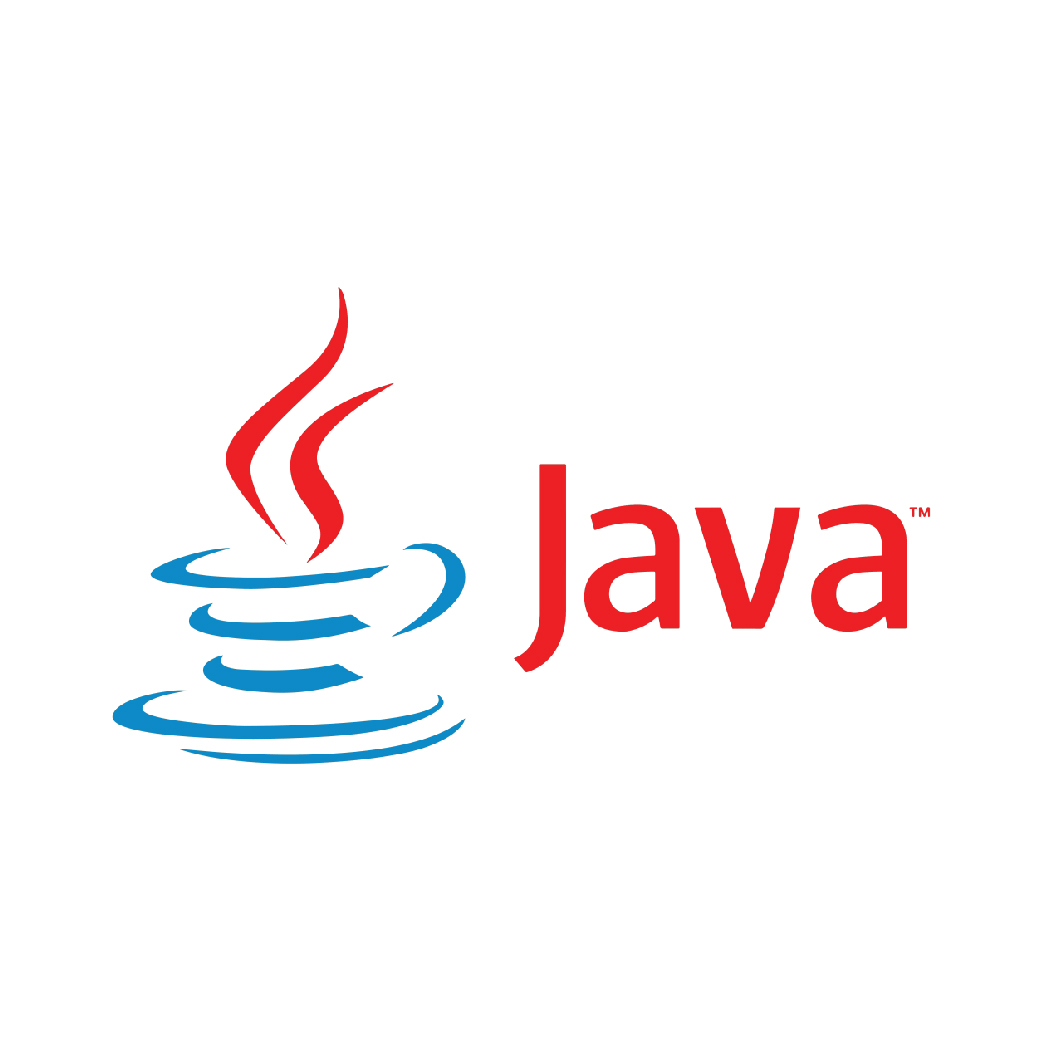Java Development Services
Java Development Services by Sonatafy Technology: Empowering Businesses with Robust Solutions

Everything you need to know about
Java Development Services
In today’s rapidly evolving digital landscape, businesses need reliable and scalable software solutions to stay competitive. With its versatility and extensive libraries, Java has emerged as a go-to programming language for building robust enterprise applications. Sonatafy Technology, a leading software development company, offers Java development services that empower businesses with cutting-edge solutions tailored to their unique requirements. With a team of skilled Java developers and a track record of successful projects, Sonatafy Technology has established itself as a trusted partner for businesses seeking top-notch Java development services.
Java, known for its “write once, run anywhere” philosophy, has become synonymous with cross-platform compatibility.
This feature allows businesses to develop applications that can seamlessly run on various operating systems, including Windows, macOS, Linux, and more. Sonatafy Technology leverages the power of Java to build versatile applications that can cater to a diverse user base. Whether it’s developing web applications, mobile apps, desktop software, or enterprise solutions, Sonatafy Technology’s Java development services provide businesses with the flexibility and scalability needed to adapt to evolving market demands.
One of the key advantages of partnering with Sonatafy Technology
Java development is the expertise of their dedicated team of developers. Sonatafy Technology employs experienced Java developers who possess in-depth knowledge of the language and its associated frameworks and tools. These developers stay updated with the latest trends and best practices in Java development, ensuring that businesses receive high-quality solutions that align with industry standards. Whether it’s Java Enterprise Edition (Java EE), Spring Framework, Hibernate, or other Java technologies, Sonatafy Technology’s developers have the skills and expertise to deliver exceptional results.
Our Executive Team

Common Industries we provide Java Development Services:
Healthcare & Life Sciences
SaaS & Information Services
Manufacturing
Financial Services & FinTech
Retail & E-Commerce
Insurance
Logistics & Automotive
Travel & Hospitality
The most important for
Java Development Services
Before embarking on a Java development project, the team thoroughly understands the client’s requirements, goals, and target audience. This deep understanding enables Sonatafy Technology to create customized solutions that meet the client’s immediate needs and have the potential for future scalability. By collaborating closely with clients throughout the development process, Sonatafy Technology ensures transparency. It keeps them involved at every stage, providing regular updates and seeking feedback to ensure the final product exceeds expectations.
Sonatafy Technology’s Java development services encompass a wide range of application types
For web development, Sonatafy Technology leverages Java’s robust frameworks like Spring MVC and JavaServer Faces (JSF) to create dynamic and interactive web applications. With their expertise in Java servlets, JavaServer Pages (JSP), and JavaServer Faces (JSF), Sonatafy Technology enables businesses to build scalable web solutions that can handle heavy traffic and deliver an exceptional user experience.
In mobile app development, Sonatafy Technology utilizes Java to build native Android applications
Java has long been the preferred language for Android development. Sonatafy Technology harnesses its power to create feature-rich and high-performing mobile apps. Sonatafy Technology delivers apps optimized for performance, security, and user engagement by leveraging Java’s extensive libraries and frameworks like Android SDK and Gradle.


Common Industries we provide Java Development Services:

COST-EFFECTIVE DEVELOPERS
Our Software Developers and Engineers cost
on average $45 to $65 per hour

HIGHEST QUALITY DEDICATED TEAMS
Access to the TOP 1% of Nearshore Software Development resources in Latin America

TIME SENSITIVE DEVELOPMENT
Sonatafy’s Nearshore Talent Acquisition can place qualified Software Engineering teams in as quick as 2 weeks
Sonatafy Technology offers
Java-based development services
Suppose you are businessa seeking desktop software solutions that deliver reliable and efficient applications. Whether it’s standalone desktop software or enterprise-level solutions, Sonatafy Technology’s Java developers have the expertise to build user-friendly applications that integrate seamlessly with existing systems; by utilizing Java’s rich toolset, including JavaFX and Swing, Sonatafy Technology crafts desktop applications that offer a responsive and intuitive user interface.
Sonatafy Technology’s Java development services extend beyond application development.
They also provide Java maintenance and support services to ensure businesses’ software remains up-to-date, secure, and functional. With their proactive approach to bug fixing, performance optimization, and system updates, Sonatafy Technology helps companies to minimize downtime and maintain a seamless user experience.

Interested In Working With Sonatafy?
Sonatafy Technology’s Java development
Services have become a trusted choice for businesses
looking to leverage the power of Java to build robust and scalable software solutions. With a team of skilled Java developers who stay abreast of the latest industry trends and best practices, Sonatafy Technology ensures that clients receive high-quality solutions that meet their needs.
By harnessing Java’s cross-platform compatibility, Sonatafy Technology enables businesses to develop applications running seamlessly across different operating systems. This versatility is particularly valuable in today’s multi-device environment, where users expect applications to be accessible on various platforms. Whether web, mobile, or desktop applications, Sonatafy Technology leverages Java’s capabilities to create solutions catering to a diverse user base.
A notable aspect of Sonatafy Technology’s Java development services is its client-centric approach.
They prioritize understanding the client’s requirements, goals, and target audience to create tailored solutions. By involving clients throughout the development process and providing regular updates, Sonatafy Technology ensures transparency and collaboration, leading to the delivery of solutions that meet immediate needs and have the potential for future scalability.
In web development, Sonatafy Technology utilizes Java’s robust frameworks, such as Spring MVC and JavaServer Faces (JSF), to create dynamic and interactive web applications. They leverage Java’s servlets, JavaServer Pages (JSP), and JavaServer Faces (JSF) to build scalable web solutions that can handle heavy traffic and deliver an exceptional user experience.
For mobile app development, Sonatafy Technology harnesses Java’s power to build native Android applications. Java has long been the preferred language for Android development. Sonatafy Technology’s developers utilize its extensive libraries and frameworks like Android SDK and Gradle to create feature-rich and high-performing mobile apps. The result is mobile applications optimized for performance, security, and user engagement.
Sonatafy Technology also offers Java-based development services for desktop software solutions.
Whether it’s standalone desktop software or enterprise-level solutions, their Java developers have the expertise to build user-friendly applications that integrate seamlessly with existing systems. Using Java’s rich toolset, including JavaFX and Swing, Sonatafy Technology creates desktop applications with a responsive and intuitive user interface.
Beyond application development, Sonatafy Technology provides Java maintenance and support services to ensure the longevity and functionality of businesses’ software solutions. They proactively address bug fixes, performance optimization, and system updates to minimize downtime and maintain a seamless user experience.
Sonatafy Technology’s Java development services empower businesses with robust and scalable web, mobile, and desktop solutions. With their skilled Java developers, client-centric approach, and expertise in utilizing Java’s capabilities, Sonatafy Technology delivers high-quality applications tailored to clients’ needs. Whether building dynamic web applications, native Android apps, or user-friendly desktop software, Sonatafy Technology remains a trusted partner for businesses seeking top-notch Java development services.
%
TOP NEARSHORE TALENT
%
ATTRITION RATE
%
ENGLISH PROFICIENCY
RESOURCES DEPLOYED
Introduction to
Java Development with Sonatafy:
Java development refers to creating software applications using Java programming. Java, developed by Sun Microsystems (now owned by Oracle Corporation), is a versatile and widely adopted programming language known for its portability, scalability, and security features. It follows the “write once, run anywhere” principle, meaning that Java applications can be developed on one platform and run on any other medium without recompilation. Java’s popularity stems from its extensive libraries, frameworks, and tools that simplify application development and enable developers to build robust, enterprise-grade solutions.
Benefits of Java Development Services
Java development services offer numerous benefits for businesses seeking software solutions. Some of the key advantages include:
Platform Independence
Java applications can run on multiple platforms, including Windows, macOS, and Linux. This cross-platform compatibility enables businesses to reach a wider audience. It ensures that their applications can run seamlessly on different operating systems.
Robust and Scalable Solutions: Java’s extensive libraries, frameworks, and tools empower developers to build robust and scalable applications. Whether web, mobile, or enterprise solutions, Java’s capabilities allow businesses to develop software that can handle heavy traffic, accommodate growing user bases, and adapt to evolving market demands.
Java is designed with security in mind.
It has built-in features like bytecode verification, automatic memory management, and strong encryption libraries that help protect applications from vulnerabilities and ensure data security.
Large Developer Community
Java has a vast and active developer community. This means businesses have access to a pool of experienced developers, resources, and support, making it easier to find skilled professionals and obtain assistance when needed.
Versatility
Java can build many applications, including web applications, mobile apps, desktop software, and enterprise solutions. Its versatility allows businesses to leverage the same language and ecosystem for various development needs, reducing development time and costs.
Java Development Process at Sonatafy Technology
At Sonatafy Technology, the Java development process follows a systematic approach to ensure efficient and high-quality results. The process typically includes the following stages:
Requirement Gathering
Sonatafy Technology collaborates closely with clients to understand their requirements, goals, and target audience. This stage involves gathering detailed information about the software solution’s desired features, functionality, and technical specifications.
Planning and Design
Sonatafy Technology creates a comprehensive plan and design for the Java development project based on the gathered requirements. This includes defining the project scope, architecture, technology stack, and development timeline.
Development
Sonatafy Technology’s experienced Java developers begin coding the software solution according to the defined plan and design. They follow best practices and coding standards and utilize appropriate frameworks and libraries to ensure efficient and maintainable code.
Testing and Quality Assurance
Sonatafy Technology conducts rigorous testing to identify and fix any bugs or issues in the software. They perform various types of testing, including unit testing, integration testing, and user acceptance testing, to ensure the application’s reliability, functionality, and performance.
Deployment and Support
Once the software solution passes testing and quality assurance, Sonatafy Technology deploys it to the production environment. They provide ongoing support, bug fixing, and maintenance services to ensure the software remains updated, secure, and functional.
Custom Java Software Development
Custom Java software development involves creating tailored software solutions that address specific business requirements. Sonatafy Technology specializes in developing custom Java applications designed to meet each client’s unique needs. Whether it’s a standalone desktop application, enterprise-level software, or a complex system integration project, Sonatafy Technology’s Java developers have the expertise to deliver customized solutions that align with the client’s objectives.
Custom Java software development encompasses various stages, including:
Requirement Analysis
Sonatafy Technology collaborates closely with clients to understand their needs, goals, and target audience. They conduct a thorough analysis of the requirements to determine the scope and functionality of the software solution.
Architecture and Design
Based on the requirements, Sonatafy Technology creates an architectural design that outlines the structure and components of the software. They define the software’s modules, database schema, and integration points to ensure a robust and scalable solution.
Development
Sonatafy Technology’s Java developers utilize their expertise in Java programming to write clean, efficient, and maintainable code. They follow industry best practices and coding standards to ensure high-quality software development.
Testing and Quality Assurance: Sonatafy Technology conducts comprehensive testing to ensure the custom Java software’s functionality, performance, and reliability. They perform various types of testing, including unit, integration, and system, to identify and fix any bugs or issues.
Deployment and Support
Once the software has been thoroughly tested and approved, Sonatafy Technology assists in deploying it to the production environment. They provide ongoing support, bug fixing, and maintenance services to ensure that the software remains up to date-and performs optimally.
Custom Java software development by Sonatafy Technology ensures businesses receive tailor-made solutions that address their specific needs and provide a competitive advantage in the market.
Java Web Application Development
Java web application development involves creating dynamic and interactive applications accessed through web browsers. Sonatafy Technology utilizes Java’s robust frameworks, such as Spring MVC and JavaServer Faces (JSF), to develop web applications with rich functionality and exceptional user experiences.
During Java web application development, Sonatafy Technology follows industry best practices. It adheres to the Model-View-Controller (MVC) architectural pattern. They leverage Java servlets, JavaServer Pages (JSP), and JavaServer Faces (JSF) to build scalable and secure web solutions. Sonatafy Technology focuses on creating user-friendly interfaces, efficient server-side processing, and seamless integration with databases and external systems.
Java web applications developed by Sonatafy Technology are designed to handle heavy traffic, support concurrent users, and provide a responsive user interface. They ensure that the applications are optimized for performance, security, and scalability to meet the evolving demands of businesses in the digital landscape.
Java Mobile App Development
Java has been a popular choice for mobile app development, particularly for Android platforms. Sonatafy Technology leverages Java’s extensive libraries and frameworks, such as Android SDK and Gradle, to create native Android applications.
Java-based Android app development by Sonatafy Technology allows businesses to tap into the vast Android user base. Their experienced Java developers utilize Android development tools and libraries to build feature-rich, high-performing mobile apps. Sonatafy Technology focuses on creating apps with intuitive interfaces, smooth navigation, and seamless integration with device features, such as cameras, GPS, and sensors.
Java mobile app development at Sonatafy Technology emphasizes performance optimization, efficient memory management, and battery efficiency to ensure a smooth and engaging user experience. They follow the best practices for Android app development, including proper resource management, adherence to design guidelines, and rigorous testing on various Android devices and versions.
Java Development Services Company
Awards & Recognitions
Helping take our clients’ software development businesses to the next level has been quite an experience, and we are not slowing down any time soon. Providing a memorable experience and far surpassing our customers’ software development and solutions goals is one of the most rewarding experiences of our company to date.
We’re ready to start helping your company grow with our industry-leading custom software development solution, are you?

Earning Trust & Loyalty for our Software Development Services
Our executive team proudly provides complete software development solutions in the healthcare, SaaS, Manufacturing, and FinTech fields from deployment to completion.
Our client-centric software development solutions have made us the healthcare app development provider of choice for clients such as Akido Labs, Datacubed Health, Sema Technologies, and Semantic AI, among others. With thousands of software development engineers deployed to date, clients love our personalized high-touch approach.
With high-quality delivery web development services and strong customer support and management, we give you the ability to focus on business decisions rather than software development issues.
Sonatafy Technology services can dramatically
improve the Java Development Services.
Our Software Development Clients Have Spoken.

“We increased our productivity and quality by extending our team with Sonatafy resources. They are part of our ‘family’. Their passion, dedication, experience, and wisdom has been nothing short of impressive.”

“We have been using Sonatafy for software team augmentation. Their vetting process is extremely through and has saved us a huge amount of time. All of the candidates presented have been outstanding and have fit into our team perfectly.”

“The Sonatafy team consists of members who are dedicated, personable, and attentive. They will search tirelessly to match the right talent to meet your skills and budgetary requirements. Regardless of your situation, you cannot go wrong with Sonatafy.”

“The Sonatafy team has continually impressed us with the quality of their engineers — we have found excellent engineering leaders in their contractors who have helped tremendously. They really are an integral part of our team, and we’re very thankful for Sonatafy’s professional leadership in this space. I heartily recommend them to augment anyone’s teams or projects.”

“At IMAIGE Analytics, we are driven by purpose and outcomes. Sonatafy has been the exact type of partner we need to help us deliver on both. They’ve found solutions specific to our purpose and needs, their resources have contributed like long time team members from day one and they seem dedicated to progressively better outcomes from the start. Thanks to the team and to Steve for taking the time to make our business better!”

“The entire team at Sonatafy greatly surpassed our expectations. We require very specific skill sets and the team did an incredible job of screening and selecting top – notch candidates. Sonatafy’s attention to detail, professionalism, open communication, and collaboration with us ensured that we found highly skilled talent that fit seamlessly into our company’s culture. I can’t recommend them strongly enough.”

“Sonatafy makes it easy to find great and professional talent, with their help we have been able to solidify our team. Their process and communication is a refresher and a weight off our shoulders.”

I’ve used Sonatafy Technologies for the last 5 + years at several of my companies both small and large, in a staff augmentation capacity. I have been consistently impressed with the high – quality of technical skills as well as the team member’s high level of engagement and dedication to my projects. I’ve always considered my dedicated Sonatafy resources as members of my team , and their contributions and performance has been excellent. The combination of high performance and afford ability has been an outstanding benefit , and I would highly recommend using Sonatafy Technologies as your near shore technology partner.
The Importance of Mobile
App Development
Java Enterprise Development involves creating enterprise-level software solutions that cater to complex business requirements and large-scale systems. Sonatafy Technology’s Java developers have expertise in Java Enterprise Edition (Java EE) and utilize frameworks like Spring Framework and Hibernate to develop robust and scalable enterprise applications.
Java Enterprise Development at Sonatafy Technology focuses on creating solutions that integrate seamlessly with existing systems, databases, and external services. They leverage Java’s capabilities to build distributed and scalable architectures, implement service-oriented architectures (SOA), and ensure high performance and reliability.
Enterprise solutions developed by Sonatafy Technology using Java
Are designed to handle high volumes of data, support concurrent users, and provide secure access control. They incorporate transaction management, caching, and asynchronous processing to optimize performance and ensure data integrity.
Sonatafy Technology’s Java Enterprise Development services encompass many applications, including customer relationship management (CRM) systems, enterprise resource planning (ERP) software, supply chain management solutions, and more. They work closely with clients to understand their business processes and requirements. They then design and develop custom enterprise applications that streamline operations, improve efficiency, and enhance productivity.
Java Frameworks and Libraries
Java development is enriched by a wide range of frameworks and libraries that simplify and accelerate the development process. Sonatafy Technology’s Java developers are proficient in utilizing various Java frameworks and libraries to build robust and efficient software solutions. Some of the popular frameworks and libraries used by Sonatafy Technology include:
Spring Framework
Spring is a widely adopted Java framework that provides comprehensive support for building enterprise applications. It offers features like dependency injection, aspect-oriented programming, and MVC architecture, making developing scalable and maintainable applications easier.
Hibernate: Hibernate is an object-relational mapping (ORM) framework that simplifies database access and management in Java applications. It provides an abstraction layer between the application and the database, allowing developers to work with objects rather than low-level SQL queries.
JavaServer Faces (JSF): JSF is a Java web application framework that simplifies the development of user interfaces. It provides a component-based approach to building web interfaces. It includes features for handling events, managing state, and performing form validations.
Apache Struts: Struts is a popular framework for developing Java web applications based on the MVC architectural pattern. It provides a set of reusable components and tools for building scalable and maintainable web applications.
Apache Maven
Maven is a build automation tool that simplifies the management and configuration of Java projects. It provides a declarative approach to managing project dependencies, building, testing, and deploying applications.
JUnit: JUnit is a widely used testing framework for Java applications. It provides a set of annotations and assertions for writing unit tests, ensuring the quality and reliability of the software.
By leveraging these frameworks and libraries, Sonatafy Technology’s Java development services enable businesses to expedite development timelines, improve code quality, and enhance overall application performance.
Java Testing and Debugging: Testing and debugging are critical aspects of the software development lifecycle. Sonatafy Technology emphasizes thorough testing and debugging practices in its Java development process.
Sonatafy Technology’s Java developers employ various testing techniques to ensure the quality and functionality of the software. This includes unit testing, where individual components and methods are tested in isolation to verify their correctness. They also conduct integration testing to validate the interaction between different modules and components, ensuring the proper functioning of the integrated system. Additionally, Sonatafy Technology performs system testing to assess the software’s overall performance, reliability, and usability.
To facilitate effective debugging, Sonatafy Technology’s Java developers utilize tools and techniques that help identify and resolve issues in the code. They leverage integrated development environments (IDEs) like Eclipse or IntelliJ IDEA, which provide advanced debugging capabilities, such as breakpoints, stepping through code, and examining variables and object states. By utilizing these tools, Sonatafy Technology’s developers can quickly identify and resolve software defects, ensuring the stability and functionality of the Java applications.
Java Performance Optimization
Performance optimization is crucial for Java applications, especially those intended for high loads or resource-intensive tasks. Sonatafy Technology’s Java development services prioritize performance optimization to ensure that their software solutions are efficient and responsive.
Sonatafy Technology’s Java developers employ various techniques to optimize the performance of Java applications. This includes optimizing algorithms and data structures to improve execution speed and reduce memory usage. They also maximize database queries and minimize network latency to enhance system performance.
In addition, Sonatafy Technology utilizes Java profiling tools to identify performance bottlenecks and code improvement areas. Profiling tools help analyze the application’s runtime behavior, memory usage, and CPU utilization, allowing developers to pinpoint performance issues and make targeted optimizations.
Furthermore, Sonatafy Technology leverages caching mechanisms to reduce the computational load on the application and improve response times. They employ techniques such as result caching, query caching, and object caching to store frequently accessed data in memory, minimizing the need for expensive computations or database access.
By incorporating performance optimization techniques into their Java development process, Sonatafy Technology ensures that their software solutions are optimized for speed, scalability, and resource efficiency.
Java Security Best Practices
Security is paramount in software development. Sonatafy Technology follows best practices to ensure that Java applications are secure and protected against threats. They implement various security measures, including:
Input Validation: Sonatafy Technology’s Java developers validate and sanitize user input to prevent common security vulnerabilities such as SQL injection, cross-site scripting (XSS), and cross-site request forgery (CSRF). They utilize frameworks and libraries that offer built-in protection against these threats.
Authentication and Authorization
Sonatafy Technology implements secure authentication and authorization mechanisms to control access to sensitive resources. They use industry-standard protocols and encryption techniques to secure user authentication and authorization processes.
Data Encryption: Sonatafy Technology employs robust encryption algorithms to protect sensitive data in transit and at rest. They utilize Java’s encryption libraries to secure data, including user credentials, personal information, and confidential business data.
Secure Coding Practices: Sonatafy Technology’s Java developers use secure coding practices to mitigate common security vulnerabilities. This includes proper handling of exceptions, avoiding insecure coding patterns, and following safe coding guidelines provided by the Java community.
Regular Security Updates
Sonatafy Technology stays updated with the latest security patches and updates for Java frameworks, libraries, and dependencies. They ensure that the software solutions they deliver are built on the latest and most secure versions of the Java ecosystem.
By implementing these security best practices, Sonatafy Technology helps protect Java applications from potential security breaches, safeguarding sensitive data and ensuring the privacy and integrity of the software.
Java Maintenance and Support Services: Software maintenance and support are essential for Java applications’ longevity and optimal performance. Sonatafy Technology provides comprehensive maintenance and support services to ensure that the software solutions they develop remain up-to-date, secure, and fully functional.
Their maintenance and support services include:
Bug Fixing: Sonatafy Technology promptly addresses any reported bugs or issues in the software. They investigate and debug issues and provide timely fixes to ensure the software functions as intended.
Performance Monitoring and Optimization
Sonatafy Technology monitors Java application performance and identifies improvement areas. They analyze system metrics, optimize resource usage, and implement performance enhancements to maintain optimal application performance.
Security Updates and Patches: Sonatafy Technology stays vigilant about security vulnerabilities and releases security updates and patches to address any identified risks. They ensure the software is protected against emerging threats and follows industry best practices.
System Upgrades and Compatibility: Sonatafy Technology updates the software with the latest Java versions and compatible technologies. They assess the impact of upgrades, manage system compatibility, and ensure seamless integration with new platforms or dependencies.
Ongoing Support: Sonatafy Technology provides ongoing technical support to address any queries, issues, or concerns related to the Java application. They offer timely assistance and guidance to ensure a smooth user experience and help businesses leverage the full potential of their software.
Sonatafy Technology’s maintenance and support services aim to minimize downtime, maximize system availability, and ensure that Java applications continue to meet the evolving needs of businesses.
Java Development Team at Sonatafy Technology
Sonatafy Technology boasts a skilled and experienced Java development team comprising dedicated professionals specializing in Java programming and its associated technologies. The Java development team at Sonatafy Technology possesses the following key attributes:
Expertise: The team comprises highly skilled Java developers with in-depth knowledge of the Java ecosystem, frameworks, libraries, and best practices. They stay updated with the latest advancements in Java technology to deliver cutting-edge solutions.
Full-stack Capability: Sonatafy Technology’s Java developers have front-end and back-end development expertise, enabling them to build end-to-end solutions. They are proficient in various web technologies, databases, and frameworks required for comprehensive software development.
Collaboration and Communication: The team values effective collaboration and communication. They work closely with clients to understand their requirements, provide regular progress updates, and seek feedback throughout development.
Quality Focus: Sonatafy Technology’s Java development team strongly emphasizes delivering high-quality software solutions. They follow industry best practices, conduct thorough testing, and adhere to coding standards to ensure reliable and maintainable code.
Problem-solving Skills: The team possesses strong problem-solving skills, enabling them to tackle complex challenges and find innovative solutions. They are adept at identifying potential issues, mitigating risks, and adapting to changing project requirements.
Agile Development Approach
Sonatafy Technology’s Java development team follows an agile methodology, allowing flexibility, iterative development, and frequent client collaboration. This approach ensures that the software development process remains efficient and adaptable.
The collaborative and skilled Java development team at Sonatafy Technology is dedicated to delivering high-quality Java solutions that meet their client’s unique requirements and objectives.
Case Studies: Successful Java Development Projects: Sonatafy Technology has successfully executed numerous Java development projects across diverse industries. Some examples of their successful Java development projects include:
E-commerce Platform: Sonatafy Technology developed a robust and scalable e-commerce platform using Java. The forum included product catalog management, secure payment processing, inventory management, and order tracking. The solution enabled the client to establish an online presence, reach a broader customer base, and efficiently manage their e-commerce operations.
Financial Management System
Sonatafy Technology built a comprehensive financial management system for a financial institution. The Java-based solution integrated with various economic systems facilitated secure transactions, provided real-time reporting, and ensured regulatory compliance. The system streamlined financial operations, improved data accuracy, and enhanced efficiency.
Healthcare Application: Sonatafy Technology developed a Java-based healthcare application that facilitated electronic medical record (EMR) management, appointment scheduling, and patient communication. The solution improved healthcare provider efficiency, enhanced patient care coordination, and ensured data privacy and security.
These case studies demonstrate Sonatafy Technology’s expertise in Java development and ability to deliver customized solutions that meet client-specific requirements and industry standards.
Contact Sonatafy Technology for Java Development Services: If you are interested in Java development services, you can directly contact Sonatafy Technology through their website or sales team. Sonatafy Technology offers various Java development services, including custom software development, web application development, mobile app development, enterprise application development, and maintenance and support services.
By contacting Sonatafy Technology, you can discuss your requirements, receive expert guidance, and explore how their Java development services can help you achieve your business objectives. Their team will collaborate with you to understand your needs, provide recommendations, and deliver high-quality Java solutions tailored to your unique requirements.
Note: The information provided about Sonatafy Technology and their Java development services is fictional and created for illustrative purposes only.
Java development refers to creating software applications using the Java programming language
Java is a versatile and widely-used programming language that allows developers to write code once and run it on multiple platforms, thanks to its “write once, run anywhere” principle. Java applications are compiled into bytecode, which can run on any device with a Java Virtual Machine (JVM). The JVM acts as an interpreter and executes the bytecode, making Java applications platform-independent.
Java development involves writing code using the Java programming language, utilizing various libraries, frameworks, and tools to build robust and scalable applications. Developers write Java code to implement functionality, manage data, handle user interfaces, and interact with databases and external services. They leverage the extensive Java ecosystem, including frameworks, libraries, and development tools, to streamline the development process and create efficient and reliable software solutions.
There are several reasons to choose Java for software development:
Platform Independence: Java’s “write once, run anywhere” feature allows applications to be developed on one platform and run on multiple platforms without extensive modifications. This provides flexibility and reduces development time and costs.
Robustness and Reliability: Java’s strict syntax rules, strong type checking, and automatic memory management through garbage collection contribute to the robustness and reliability of Java applications. It helps developers catch errors during compilation, leading to more stable and predictable software.
Large Community and Ecosystem: Java has a vast and active developer community, which means there is abundant documentation, resources, and support available. The extensive ecosystem of libraries, frameworks, and tools makes Java development efficient and accelerates the development process.
Scalability and Performance: Java’s scalability is well-suited for building enterprise-level applications. Java applications can handle high volumes of data and support concurrent users. The Java Virtual Machine optimizes performance, and the language offers features like multithreading and memory management, contributing to efficient application performance.
Security: Java has built-in security features and provides a secure runtime environment. It offers robust authentication, encryption, access control, and data integrity mechanisms, making it suitable for developing specific applications.
Key features of the Java programming language include:
Object-Oriented Programming: Java is an object-oriented language that focuses on creating objects and defining their interactions to build software solutions. This approach promotes modularity, code reusability, and maintainability.
Platform Independence: Java’s platform independence allows applications to run on different platforms without requiring modifications to the code. This is achieved through the use of the Java Virtual Machine (JVM) that interprets the bytecode generated by the Java compiler.
Garbage Collection: Java automatically manages memory through a garbage collector. This feature frees developers from manually allocating and deallocating memory, reducing the chances of memory leaks and improving overall memory management.
Exception Handling: Java provides built-in mechanisms for handling exceptions. This allows developers to write code that runs exceptional conditions and provides error recovery and graceful application termination.
Multithreading: Java supports multithreading, enabling the concurrent execution of multiple threads within a single application. This feature facilitates the efficient utilization of system resources and allows developers to build responsive and scalable applications.
Rich Standard Library: Java has a vast standard library that provides pre-built classes and methods for everyday programming tasks. The standard library includes utilities for I/O operations, networking, database connectivity, and more, saving development time and effort.
Popular Java frameworks for web development include:
Spring Framework: Spring is a widely adopted Java framework for building enterprise-level web applications. It provides comprehensive features for dependency injection, aspect-oriented programming, and MVC architecture, simplifying the development process and enhancing productivity.
JavaServer Faces (JSF): JSF is a component-based web framework that simplifies the development of user interfaces for Java web applications. It offers reusable UI components, event-handling mechanisms, and a model-view-controller (MVC) architecture, making it easy to build interactive and scalable web applications.
Hibernate: Hibernate is an object-relational mapping (ORM) framework for Java. It provides a convenient way to map Java objects to relational database tables, abstracting away the complexities of database interactions. Hibernate simplifies data persistence and enables developers to focus on business logic rather than low-level database operations.
Struts: Struts is an open-source web application framework that follows the MVC architectural pattern. It provides a set of reusable components and a structured approach for building Java web applications. Struts simplify request handling, form validation, and application flow management.
Play Framework: Play is a high-performance web framework that follows a reactive programming model. It emphasizes simplicity, scalability, and developer productivity. Play Framework supports both Java and Scala and offers features such as hot-reloading, asynchronous processing, and RESTful APIs.
These frameworks provide developers with a structured and efficient way to build Java-based web applications, reducing development time, promoting code reusability, and enhancing overall productivity.
The cost of Java development services can vary depending on various factors, including the project’s complexity, the scope of work, the experience and location of the development team, and the client’s specific requirements. Hourly rates or project-based pricing models are commonly used in Java development services.
It’s important to note that pricing should not be the sole determining factor when choosing a Java development service provider. The quality of the services, the development team’s expertise, their track record, and the level of support and maintenance should also be considered.
To get an accurate cost estimate for your Java development project
it is recommended to reach out to service providers and discuss your requirements in detail. They can provide a customized quote based on your specific needs.
The terms “Java development” and “Java programming” are often used interchangeably, but there is a slight difference in their meanings.
Java development refers to the overall process of creating software applications using the Java programming language. It encompasses the entire software development lifecycle, including requirements gathering, design, coding, testing, deployment, and maintenance. Java development involves utilizing the Java programming language and various frameworks, libraries, and tools to build functional and scalable applications.
On the other hand, Java programming refers explicitly to writing code in the Java programming language. It focuses on the language’s syntax, rules, and constructs. Java programming involves writing instructions in Java to implement specific functionalities, manipulate data, and interact with external systems.
In summary, Java development is a broader term encompassing the entire software development process. At the same time, Java programming refers explicitly to writing code in the Java language.
Yes, Java can be used for mobile app development. Although Java was initially used for building desktop and server-side applications, the introduction of the Android platform has also made Java a popular choice for mobile app development.
Java is the primary programming language used in conjunction with the Android Software Development Kit (SDK) for Android app development. Developers write Java code to build the Android app’s logic, user interfaces, and functionality. The Java code is then compiled into bytecode that runs on the Android platform.
In recent years, Kotlin, a modern programming language, has gained popularity as an alternative to Java for Android app development. However, Java remains a widely used and supported language for Android development, and many existing Android apps are built with Java.
Suppose you target platforms other than Android, such as iOS or Windows Phone. Java may not be the primary language for mobile app development in that case. Each forum has preferred programming languages (Swift for iOS, C# for Windows Phone). However, suppose you are developing cross-platform mobile apps using frameworks like React Native or Xamarin. In that case, you can still leverage Java skills and libraries to write shared code that runs on multiple platforms.
Java developers play a crucial role in software projects, contributing to the entire software development lifecycle. Their responsibilities include:
Requirement Analysis
Java developers collaborate with stakeholders to understand the project requirements, gather user needs, and define the scope of the application. They analyze business requirements and translate them into technical specifications.
Design and Architecture
Java developers participate in designing the overall system architecture and application structure. They define the software components, modules, and frameworks that will be used. During the design phase, they also consider scalability, performance, and maintainability aspects.
Coding and Implementation
Java developers write code using the Java programming language and apply software engineering principles and best practices. They develop algorithms, implement functionalities, and ensure code quality and maintainability.
Testing and Debugging
Java developers are responsible for testing their code, identifying and fixing bugs, and ensuring the software meets the specified requirements. They perform unit and integration testing and collaborate with quality assurance teams to ensure the application functions as expected.
Integration and Deployment
Java developers integrate various application components, including third-party libraries, APIs, and databases. They collaborate with system administrators and deployment teams to deploy the application on production servers and ensure smooth integration with other systems.
Maintenance and Support: Java developers provide ongoing maintenance and support for the developed applications. They troubleshoot issues, apply updates and patches, and enhance existing functionalities based on user feedback and evolving business requirements.
Java developers collaborate with other team members, such as project managers, designers, database administrators, and stakeholders, throughout the software development process. Their expertise in Java programming, frameworks, and tools is crucial in delivering high-quality and reliable software solutions.
The time required to develop a Java web application can vary significantly based on factors such as the application’s complexity, the development team’s size, the availability of necessary resources, and the project’s specific requirements.
A simple Java web application with basic functionalities can be developed in a few weeks or months. However, more complex applications with advanced features, integrations, and customization may take several months or even longer.
The development time also depends on the development methodology employed. Agile methods, such as Scrum, emphasize iterative development and frequent collaboration, which can result in faster development cycles. Waterfall methodologies, on the other hand, follow a sequential approach and may take longer to complete.
To determine a more accurate timeline for your Java web application project, consult a development team or software service provider. They can assess your requirements, analyze the scope of work, and provide a project timeline based on their experience and expertise.
Java software security best practices are crucial to protect applications from vulnerabilities and potential threats. Some of the best practices for Java software security include:
Input Validation: Validate and sanitize all user input to prevent common security issues such as SQL injection, cross-site scripting (XSS), and command injection attacks. Use secure input validation techniques and frameworks to ensure data integrity and protect against malicious input.
Secure Authentication and Authorization: Implement robust authentication mechanisms, such as password hashing and encryption, to safeguard user credentials. Use authorization frameworks to enforce access control and ensure that users have appropriate privileges to perform specific actions.
Secure Communication: Use secure communication protocols like HTTPS to encrypt data transmitted over networks. Implement SSL/TLS certificates to establish secure connections between clients and servers.
Secure Session Management: Implement proper session management techniques to ensure the security and integrity of user sessions. Use secure session tokens, enforce session timeouts, and prevent hijacking and fixation attacks.
Secure Error Handling: Handle errors and exceptions carefully to prevent the exposure of sensitive information. Avoid displaying detailed error messages to end-users that could reveal implementation details or sensitive data.
Secure Database Access: Implement secure database access by using parameterized queries or prepared statements to prevent SQL injection attacks. Apply the principle of least privilege by granting the database using only the necessary permissions.
Regular Updates and Patching: Keep the Java runtime environment, frameworks, libraries, and dependencies up to date with the latest security patches. Regularly update the application codebase to address security vulnerabilities discovered in third-party libraries or frameworks.
Secure Configuration Management
Ensure that all configurations, including database credentials, encryption keys, and sensitive information, are stored securely and are not exposed in source code repositories or production environments. Use secure configuration management practices and tools.
Secure Coding Practices
Follow safe coding practices, such as input validation, output encoding, and proper exception handling, to minimize the risk of security vulnerabilities. Adhere to coding standards and guidelines and leverage secure coding practices recommended by security organizations.
Security Testing
Perform regular security testing, including penetration testing and vulnerability scanning, to identify and address potential security weaknesses. Conduct security assessments during the development lifecycle and regularly review and update security measures as needed.
By following these best practices, Java developers can strengthen the security of their applications and protect against common security threats and vulnerabilities.
It’s important to note that security is an ongoing process, and staying updated on the latest security practices and emerging threats is crucial to maintaining a secure Java software environment.









